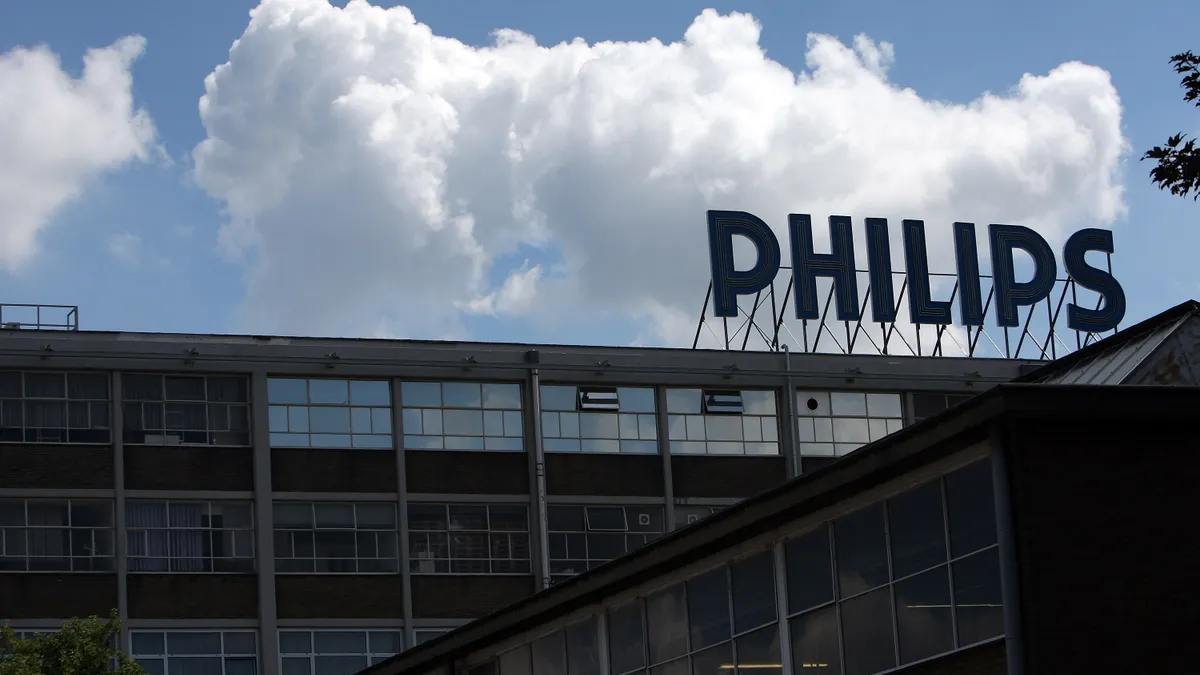Philips beat analyst expectations for sales and profits in the third quarter and raised its outlook for the full year. Yet, the results were overshadowed by challenges in China that drove a 9% drop in comparable order intake compared to the third quarter of 2022.
The top-line results contain signs that Philips is getting its business back on track after a period in which the recall of respiratory devices hurt operations. Comparable group sales rose 11% compared to the year-ago period and core profits also increased.
However, Philips also reported a 9% fall in comparable order intake. On a conference call with analysts to discuss the results, CEO Roy Jakobs blamed the decline on a slowdown in orders in China, where hospitals are contending with anti-corruption measures.
“It is a phasing issue. We don't see any cancelations coming through. It's hard to predict exactly when it will be fully worked through. We have seen this earlier as well. It took a few quarters,” Jakobs said. “We are very confident in the Chinese market and that ... we will be able to then resume our trajectory that we had in China, as it's fundamentally very attractive.”
The CEO added that Philips expects “sequential improvement” in orders in the fourth quarter.
The anti-corruption measures are affecting multiple medtech companies. Intuitive Surgical cited the situation as a factor that contributed to its failure to meet analyst expectations in the third quarter.
Returning to challenge ResMed
Philips used the third quarter results to provide an update on its respiratory business, which is still affected by the global recall of millions of sleep apnea devices and ventilators. The company said it has completed remediation of more than 99% of sleep therapy devices, although work on its ventilators is ongoing. The progress has positioned Philips to return to the market.
“We see customers really welcoming us back. There is still significant demand. There's no special program of discounts or anything like that happening or needed for us to get back in play,” Jakobs said. “Of course, we will work our way back into these markets in a gradual way as we have been out for some time, but the first steps back into the market ... are encouraging.”
Philips is re-entering the market while working to resolve the regulatory and legal fallout of the recall. The Food and Drug Administration has asked Philips to perform additional testing, a request that Jakobs said is intended to deliver data to support the company’s “conclusions of no appreciable harm.”
Philips expects to have a figure for the size of the liability for medical injury claims in the second half of next year and is still discussing a potential consent decree.
MR lead times hurt orders
Jakobs told investors that Philips has improved its supply chain to the point that the lead times at many of its businesses are “fully in line with the market.” The big ongoing challenge is to reduce the lead times for magnetic resonance (MR) imaging devices. Jakobs expects to see improvements by the end of the year, but lead times are currently hurting the business.
Asked if long lead times are causing Philips to lose orders to faster competitors, CFO Abhijit Bhattacharya told investors that is “exactly correct.” As Bhattacharya explained, if Philips can supply a device in a year and competitors can do it faster, “it doesn't help us in terms of securing the order, and that's why now, most of our modalities are back, except for MR which we are working through.”
Outlook
Philips raised its full-year outlook for comparable sales growth to 6% to 7%, up from the “mid-single-digit” forecast it made three months ago. Philips added the caveat that “uncertainties remain in an increasingly volatile geopolitical environment.”











